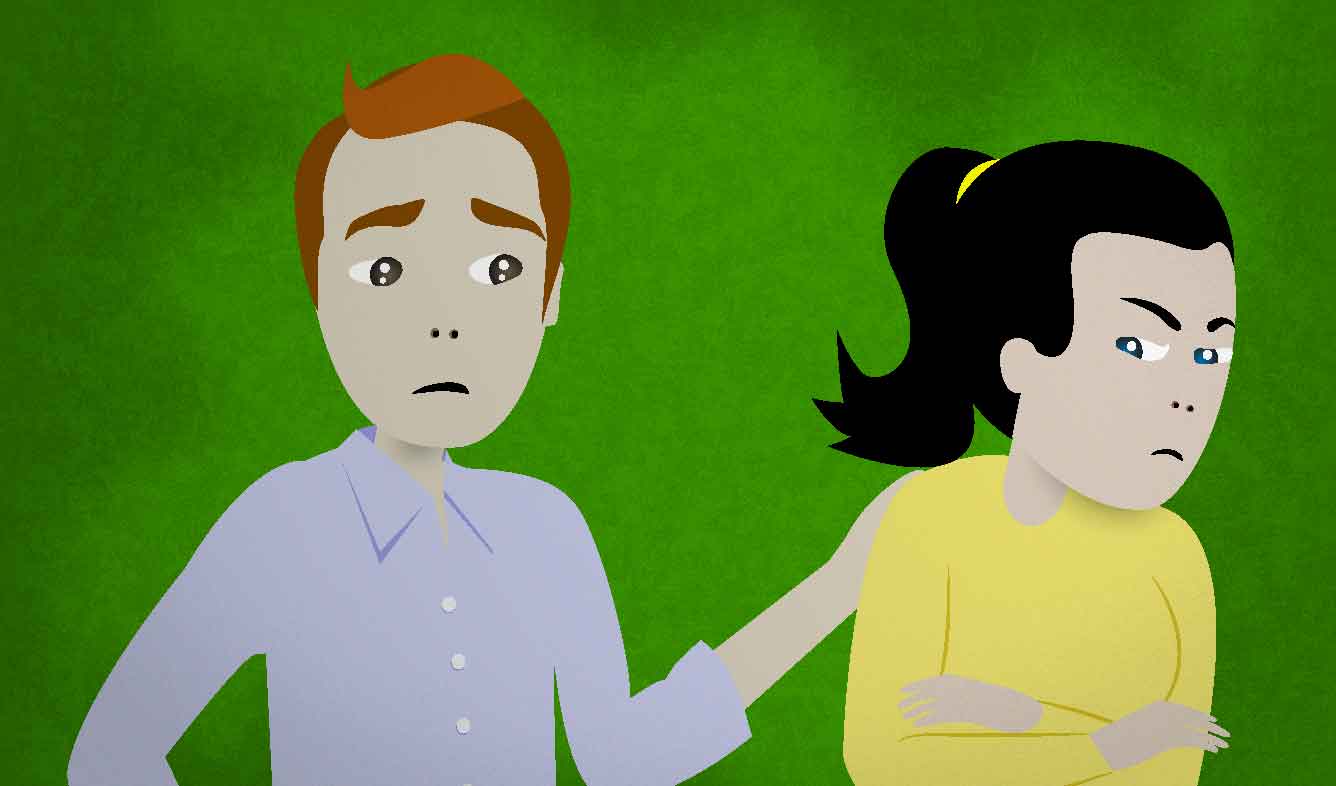“Come on. I didn't mean it that way.”
You were talking with your girlfriend. You mentioned that she doesn't dress in really fancy, expensive clothes. You wanted to say that you like this about her, but now she's angry. She feels like you're insulting her style. You say this in your defense.
Come on. I didn't mean it that way.
Want Video and Sound? Follow us on YouTube

Come on.
"Come on" is something to say when you're trying to persuade someone:
You also say "Come on!" when someone is upset or angry, and you're trying to get them to calm down:
Come on. Don't talk that way. Of course I love you.
Come on. Let's stop fighting, and sit down and talk about this.
I didn't mean it that way. / I didn't mean it like that.
Use this expression when someone has misunderstood what you wanted to say. You should especially say this when you say something in a friendly, innocent way, but someone gets offended by it. Here's another example:
B: Oh, thanks a lot! (Sarcastically)
A: No, I didn't mean it that way. I meant that you sound like you have a cold or something.
The phrases "I didn't mean it that way" and "I didn't mean it like that" are pretty much the same.
